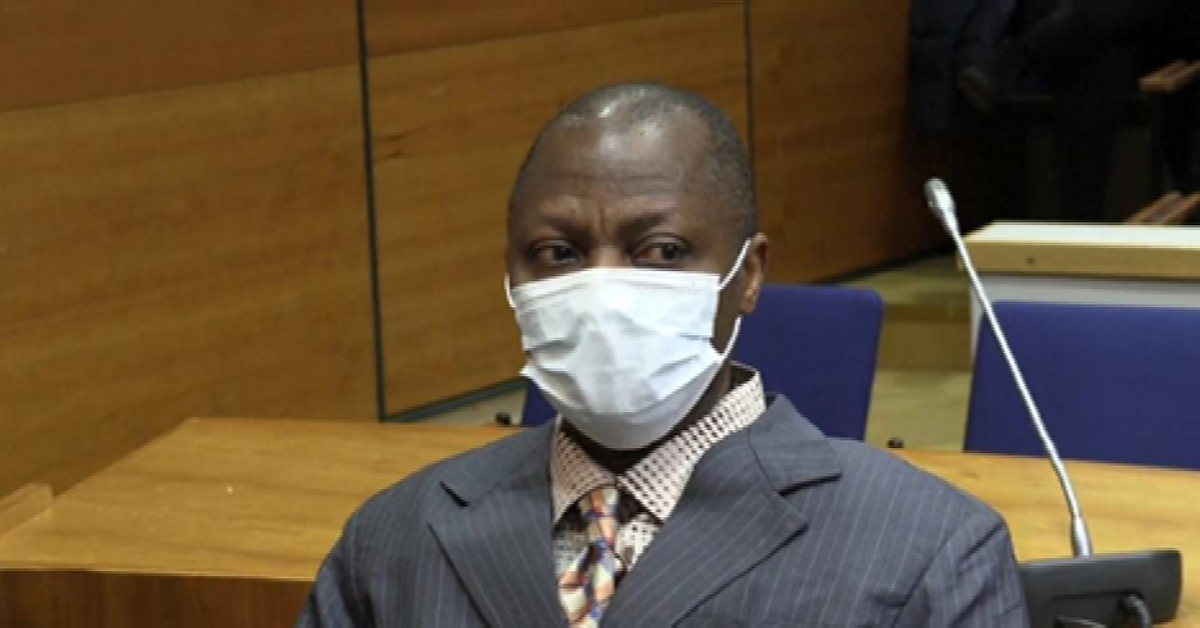Former Revolutionary United Front (RUF) fighter has disputed accounts of mainly prosecution witnesses that an ex-commander of the rebel group Gibril Massaquoi was called “Angel Gabriel.”
“Soldier 43,” told Finland’s Turku Court of Appeal that two RUF soldiers used the nickname.
He said They were both junior soldiers in the RUF.
The name has been a bone of contention in the trial, with many witnesses, particularly prosecution and defense telling the Court Massaquoi’s soldiers calling him by it. Some even alleged he introduced himself by the name before “sending civilians or his opponents to God.”
They however alleged that while strengthening the Liberian government’s troops in the battle against rebels from the Liberians United for Reconciliation and Democracy (LURD), Massaquoi did the killings or ordered them in Lofa County and at Waterside in Monrovia.
Also in the Pirkanmaa Court District of Tampere, which acquitted Massaquoi a year ago, because prosecutors had failed to prove his charges, including rape, murder, and torture beyond a “reasonable doubt,” the controversial name is at the heart of these appeal proceedings.
Meanwhile, Soldier 43 has alleged the witnesses were talking about a different man, as he told the Court of Massaquoi’s other name.
“We used to call Gibril God’s son, because of all the troubles he encountered during the war.”
It’s the first time that such a name has come up in the case; whether in the lower or appellate court.
Soldier 43 further said that he knew of two different RUF soldiers, who used the name, Angel Gabriel. He claimed the real name of one of them was not disclosed, while he knew the other to be Alfred Jojo.
“He was my junior in the group, and I was his brother-in-law,” he said. “I was going out with his elder sister during the war. That was how I found out that his real name was Alfred Jojo.”
“They both fought with us from 1991, but around 1997 upwards, the whereabouts of Alfred Jojo was unknown, while the other died in either 1994 or 1995 because I can’t remember clearly.”
He continued that Massaquoi was in Liberia in the early 2000s.
“I can only remember Massaquoi traveling for the peace accord in December 2001.”
The years 2002 and 2003 are crucial to this trial, as prosecutors have alleged Massaquoi abused his status as a “protected witness” for the then UN-backed Special Court for Sierra Leone and came to Liberia to commit his crimes, including ordering massacres at Waterside.
“Defense 21,” also said he was a civilian, but witnessed the war; he told the Court that Massaquoi was in Liberia between 1999 and 2000, but only “for peaceful purposes.”
“Massaquoi was the head of the delegation of peace,” said Defence 21. “They even went to Kenema in the eastern part of Sierra Leone to sign the tripartite agreement and went to Monrovia, Mali, and other countries.”
The day’s last witness, “Soldier 41” told the Court that Massaquoi only came to Liberia when he and other soldiers had come to receive their leader, Foday Sankoh in October 1999. But he stated that they returned to Sierra Leone afterward.
“Those on the trip were Gibril Massaquoi, Jackson Swaray, Akim Turay, and others and we traveled back to Freetown with Foday Sankoh.”
The coverage of the appeal of Massaquoi’s acquittal is a collaboration with New Narratives as part of the West Africa Justice Reporting Project.











